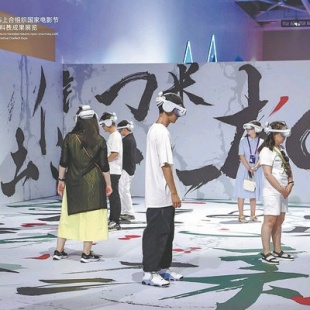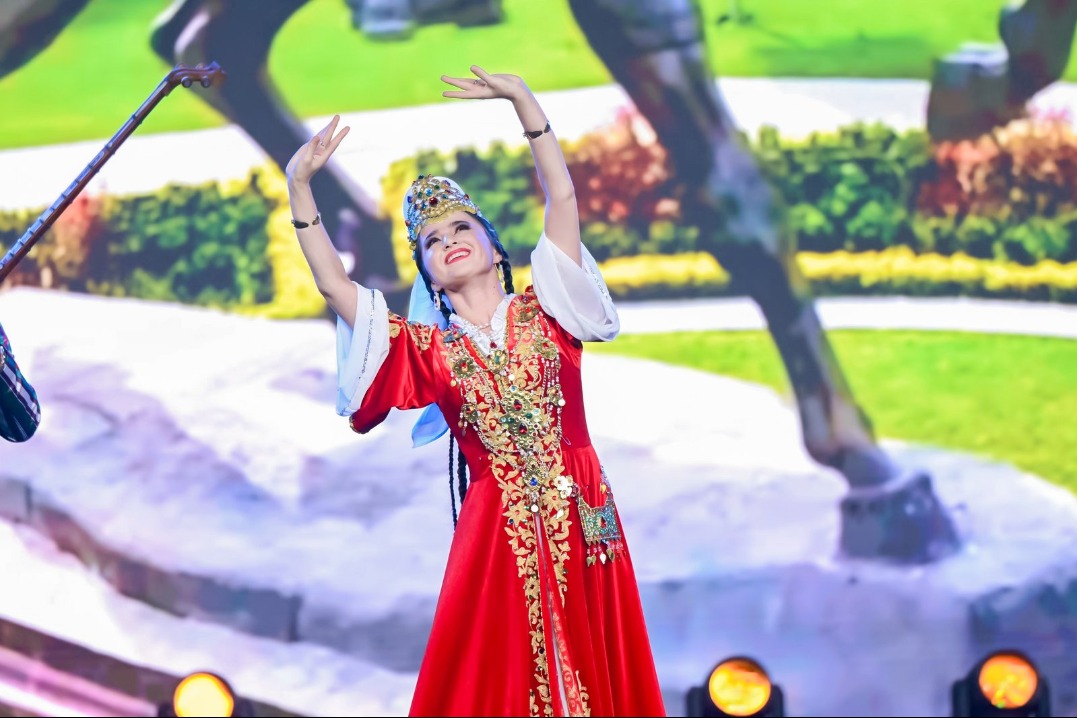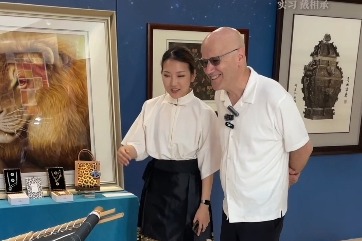Quality and high-tech in sharp focus for movie and TV sector

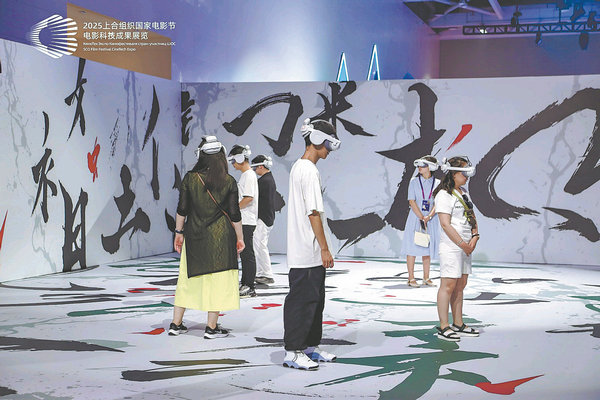
As the global film and television industry grapples with the effects of technological revolutions like artificial intelligence and virtual production, Chongqing's Yongchuan district is pioneering a new ecosystem for a high-quality, technology-driven film and TV sector.
At the enthralling opening ceremony of the 2025 Shanghai Cooperation Organization Film Festival, which took place on July 4 at the expansive Phase II studio within Yongchuan Technology Studio, one of the largest LED virtual production systems in Asia made its debut.
Yongchuan Technology Studio spans 84,000 square meters into two divided phases. Phase I, covering 17,000 sq m, features two 3,000-sq m standard photography studios. And Phase II, totaling approximately 32,800 sq m, was just finished in April. It comprises a 5,000-sq m practical set studio, a 2,000-sq m practical set studio, a 3,000-sq m virtual shooting stage, and a 5,000-sq m workshop for scenery and props.
Since the completion of its first phase in May 2023, Yongchuan Technology Studio has focused on virtual production technology, establishing a comprehensive technological film and TV industrial system. It has become a popular domestic film production base, having serviced over 50 film projects, said Chen Liang, vice-president of Chongqing-based Dawa (Chongqing) Imaging Technology. Dawa, the developer of the giant LED virtual production system, also operates the studio.
Chen noted the film Resurrection, winner of the Special Prize of the Jury Award at this year's Cannes Film Festival, conducted all its studio shooting in Yongchuan. The film set in a post-apocalyptic future follows an android as it journeys through different periods in cinema's 100-year history, including the early silent-film era.
The studio can now enhance the shooting efficiency of the production team by over 40 percent, and the studio's shooting schedule is already booked up until the first quarter of 2026.
An important part of the festival, the SCO Film Festival CineTech Expo — showcasing the most cutting-edge achievements of over 40 leading domestic film and TV technology enterprises — opened at the Yongchuan International Convention and Exhibition Center during the event.
It featured four themed areas and three special sections, highlighting the latest advancements in the industrialization, digitalization, and intelligentization of the Chinese film and television industry. Key technologies showcased included AI, virtual shooting, motion capture, digital humans, virtual reality and spatial audiovisual, the organizing committee said.
The expo has piqued the interest of filmmakers from SCO countries eyeing the Chinese market.
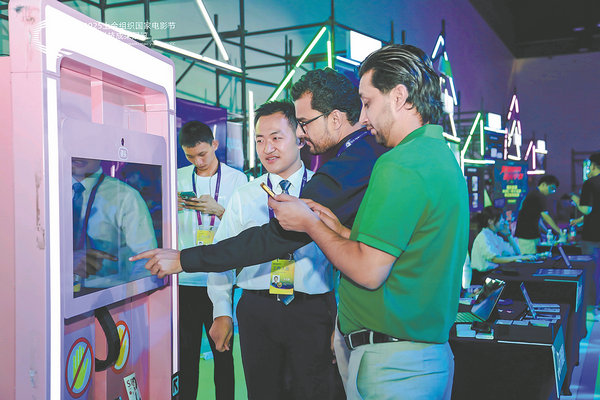
"I'm curious about what kind of development has been done," said Nadeem Mandviwalla, a film distributor from Pakistan who attended the expo. "And if there's a possibility to incorporate edgy filming technologies into my projects, why not?"
Mandviwalla arrived at the festival with the Pakistani delegation and shared his recent focus on releasing their blockbuster film The Legend of Maula Jatt. This action-packed movie made waves upon its 2022 release, breaking records with a staggering box-office revenue exceeding $5 million. He is now working toward its release in the lucrative Chinese market.
"Recently, domestic film technology is unfolding in unprecedented ways, marking a significant shift in the industry's historical trajectory," said Ma Ping, director of AI Research Institute of China Film Group.
"But I think it's too early to say that AI has truly empowered the film and TV sector," he said, adding that within the domain of film production demanding advanced technological standards, only the most innovative technologies at the zenith of the pyramid can be utilized.
He also addressed the issue of an evenly balanced competition and the need to combine resources strategically to create a framework for independent, collective industry growth.


